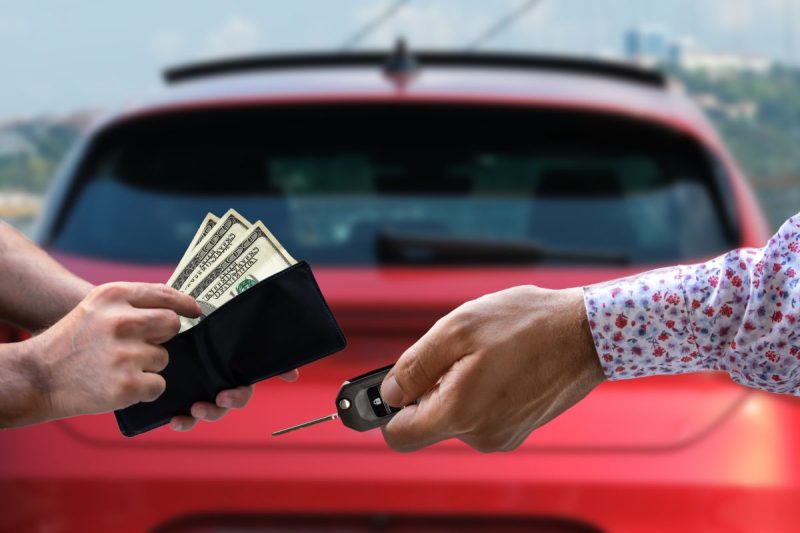
VIN cloning represents a significant threat in the automotive industry, enabling criminals to disguise stolen vehicles with the identities of legitimate cars. This illegal practice involves copying a 17-digit Vehicle Identification Number (VIN) from an authentic vehicle and affixing it to a stolen, salvaged, or otherwise compromised automobile. The ramifications of VIN cloning extend beyond individual car owners; it undermines the integrity of vehicle tracking systems and poses risks to consumer safety.
Under federal law, including the National Motor Vehicle Title Information System Act, VIN cloning is classified as a felony, carrying potential penalties of up to 15 years in prison and substantial fines. The implications of this crime can be severe, as it compromises vehicle registration, insurance, and recall records.
Consumer Safety and Financial Risks
VIN cloning directly jeopardizes consumer safety and financial security. A cloned vehicle may have been involved in accidents or suffered severe damage, such as being totaled in a flood. The fraudulent identity obscures these vital details from safety-recall databases, often leaving unsuspecting owners unaware of their vehicle’s true history. Many individuals only learn of the cloning when an insurance claim is denied, the police seize the vehicle, or a registration renewal is blocked.
Moreover, legitimate owners whose VINs have been stolen may find themselves entangled in police investigations or face increased insurance premiums when their cloned vehicles incur violations in other jurisdictions.
Detecting VIN Cloning Before Purchase
To mitigate the risks associated with purchasing a cloned vehicle, prospective buyers should conduct thorough inspections. A hands-on approach begins with comparing the VIN visible through the windshield to secondary stamps found on the driver-side door-jamb, engine block, and transmission case. Each character must match precisely.
Professional inspectors often utilize tools like bore-scopes and paint-thickness gauges to identify swapped rivets and ground-down welds. It is advisable to order vehicle history reports from multiple providers, including Carfax and AutoCheck, as well as NMVTIS-based services like iSeeCars. Additionally, buyers should cross-check the VIN using the free National Insurance Crime Bureau (NICB) VINCheck tool and verify that the vehicle’s specifications align with its appearance.
Key locations for VIN inspection include the primary VIN dash plate, which should sit flush under factory rivets. Signs of tampering include fresh paint, mismatched fonts, and uneven stamping depth. On newer vehicles, the VIN etched on the engine or transmission case must match the dash number exactly.
The Criminal Process Behind VIN Cloning
Criminals typically target popular vehicle models, including full-size pickups, SUVs, and late-model luxury cars. They often photograph legitimate VINs and create near-perfect metal plates using specialized embossing presses. Cloned vehicles are then sold through unlicensed used-car dealers, online platforms, or exported overseas. In organized operations, stolen U.S. vehicles receive new identities before being shipped, while foreign-sourced cars are assigned U.S. VINs for domestic sale.
The legal repercussions for unwitting buyers of cloned vehicles can be severe. If authorities discover a duplicate VIN, the vehicle is seized, leaving the buyer without a refund or compensation. Buyers may incur significant losses, including towing and storage fees, as well as potential civil suits from title owners or insurers.
Mitigating VIN Cloning Risks
To protect themselves, buyers should demand original documentation when purchasing used vehicles. This includes the original paper title, unbroken ownership records, and matching photo identification. Buyers should also compare the VIN across all registration and service records, requesting notarized bills of sale and maintenance receipts when applicable.
The National Motor Vehicle Title Information System (NMVTIS) plays a crucial role in preventing VIN cloning by providing a federal clearinghouse for title data from all 50 states. Whenever a vehicle is branded as salvage or stolen, its record becomes instantly available nationwide, making it more difficult for cloned VINs to evade detection.
Technology also plays a vital role in combating VIN cloning. Modern data aggregators can identify patterns that signal fraudulent activity, while blockchain pilot programs and RFID chips offer digital identities that enhance verification processes.
Actions for Victims of VIN Cloning
Consumers who suspect they own a cloned vehicle should cease driving immediately and report the issue to local law enforcement. They should surrender all purchase documents, notify their DMV and insurance provider, and document all expenses related to the vehicle. Engaging an attorney with experience in auto fraud cases is advisable, as well as filing complaints with the FTC, NICB, and state attorney general’s office.
Preventive measures within the automotive industry can also help curb VIN cloning. Manufacturers are encouraged to enhance the security of VIN plates by incorporating holograms, micro-printing, and RFID chips. Standardizing VIN locations and training dealers and inspectors to verify them in real-time would help close existing loopholes.
State Responses and Emerging Trends
Different states exhibit varying approaches to preventing and prosecuting VIN cloning. Some mandate professional VIN inspections for high-risk vehicles and impose significant felony sentences, while others rely on less stringent paperwork audits. This inconsistency creates environments where criminals can exploit gaps in enforcement.
Emerging trends highlight the dual-edged nature of technology in VIN cloning operations. While online marketplaces facilitate VIN harvesting, advanced tools like high-resolution smartphone cameras allow buyers to swiftly verify VINs. Criminals, however, adapt quickly, utilizing methods such as 3-D printing to produce counterfeit plates.
As VIN cloning continues to intersect with other criminal activities, including drug trafficking and money laundering, investigations often require collaboration between federal agencies and international law enforcement.
For consumers, resources are available to report suspected VIN cloning, starting with the NICB hotline and local law enforcement. The FTC and state attorneys general also accept complaints, while insurance companies often have special investigation units that work with law enforcement to address these issues.
The implications of VIN cloning extend beyond individual transactions, affecting vehicle recalls and safety campaigns. Accurate VIN matching is essential for ensuring that recall notices reach the correct owners, preventing dangerous defects from going unaddressed.
In summary, understanding VIN cloning is critical for car buyers looking to protect themselves from fraud. By being vigilant and informed, consumers can navigate the complexities of vehicle purchases and safeguard their investments.







